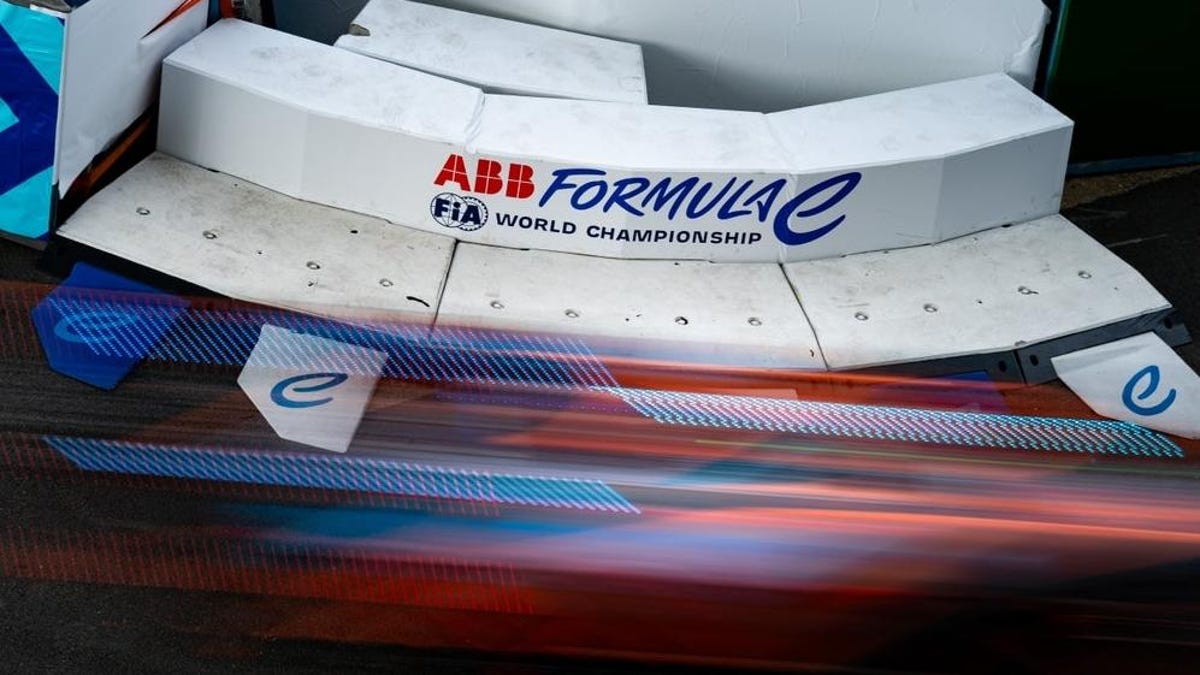When I had a chance to speak with Jeff Dodds, the new CEO of all-electric open-wheel racing series Formula E, he had been in the job for just under two months, and he was facing down a World Championship finale as one of his first races as a new boss. It’s a big role to fill partway through the first season with an entirely new generation of car, so I came armed with some big questions: What’s your leadership philosophy? Where can we see Formula E go from here?
(Full disclosure: Formula E invited me to the 2023 London ePrix World Championship finale. It coordinated a round-table interview with CEO Jeff Dodds as part of that trip.)
“When I arrived, there was already an incredible team of about 200 people,” Dodds said of Formula E, “but that’s not the business. The business is those 200 people, plus the manufacturers, plus the teams, plus the media. There’s a massive ecosystem. My philosophy is to find all of the strengths of those individuals and teams, then use them to their best advantage.”
But one of the biggest concerns many onlookers have noticed in Formula E is that all of those individual pieces of the greater ecosystem often have their own goals in mind. Ask a driver why he’s in the series, and he’ll often cite the competitive nature of the drivers and the fact that a series of spec parts enables them to meet their greatest potential as a racer. Ask one of the several German manufacturers that left FE, and you might hear that their goal — understanding high-performance electric technology — was met, enabling them to leave. Ask someone in marketing, and you’ll likely hear a much different answer. Ask an engineer, a PR employee, a front-running team, and a team struggling, and each answer will be different.
Dodds, though, recognizes that. He highlighted that each component of that ecosystem may have “a lack of clarity around exactly what they’re all pushing for.” That creates a series full of differing goals between one challenger and the next — and those goals may even conflict.
“My challenge over the off-season is to make sure that everyone is crystal clear on what their common sense of purpose will be.”
A journalist next to me asked, “What will it be?”
Dodds laughed: “Well, I’m not going to tell you that. I think we have a good sense of what it will be already; that in mind, I’m in very early days of my tenure.”
Later in the conversation, I was able to ask Dodd to elaborate on exactly where he intends to find some much-needed stability for FE in the hope that I might get a sense of where his leadership direction will be most obvious. After beginning his interview by lauding the series of incredible venues FE competes at, I was surprised by the fact that he pinpointed his biggest dilemma as being the racing calendar.
“Going back and racing at the same venue year after year delivers a huge advantage, [but] we’re also a platform to educate around sustainability. You can’t do that by only going back to the same places,” Dodds said. He further explained that he’d like a “balance,” where 80 percent of the series relies on the stability and comfort of a known venue while the other 20 percent features “change to drive new excitement and help us get that message out.”
He also noted that Formula E needs to be a “business 365 days of the year” at each venue in which it races.
“When we leave a location to go to the next one, we shouldn’t forget about that location until we’re back there the following year,” he noted. “We need to maintain a presence in every location for the entire year, not just for the period of the race.”
Dodds has formerly served in several C-suite positions at Virgin Media, as well as being the former head of marketing for Honda in the UK. Dodds obviously knows the level of responsibility his position will entail, but with FE’s season 9 ended and season 10 still months away, we’ll have to wait a while longer before we’re able to see how Dodd’s philosophies play out on a motorsport scale.

